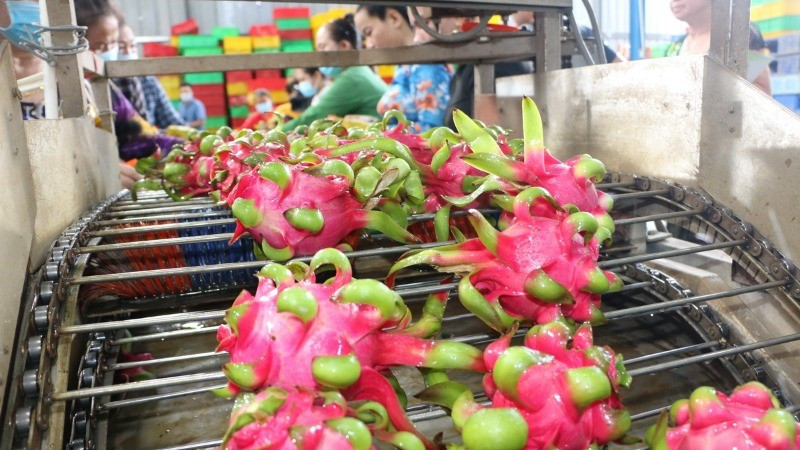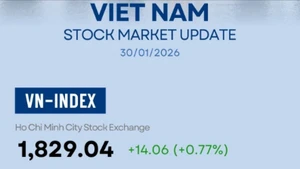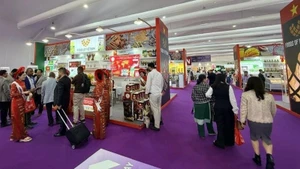According to the Vietnam Trade Office in Sweden, this Nordic country is a market with high demand for fresh fruits and vegetables, especially imported products, due to its harsh climate conditions, which result in domestic supply being insufficient to meet consumer demand.
Before 2021, Sweden imported about 1 million tonnes of fruits and vegetables annually. However, in 2023, the import volume decreased to 887,000 tonnes due to the impact of inflation and a decline in domestic consumer demand.
Despite this, the market share of imports from developing countries to Sweden increased significantly, reaching 24%, equivalent to approximately 215,000 tonnes. This opens great opportunities for exporting countries like Vietnam.
The Vietnam Trade Office in Sweden noted that one of the significant advantages of Vietnamese fresh fruits and vegetables in the Swedish market is the seasonal difference.
While Sweden produces some products like cucumbers during the summer, the demand for imported fresh fruits and vegetables increases sharply from October to May due to a lack of domestic supply.
This also creates an opportunity for Vietnam’s tropical fruits such as dragon fruit, mango, passion fruit, and other fruits to dominate the market during this "off-season" period.
Specifically, Sweden is witnessing a strong shift in consumer trends, with increasing demand for organic and sustainable products.
Sweden is currently the sixth-largest importer of organic products in Europe. Over 50% of the fruits and vegetables imported into this market are organic, with bananas being a notable item, as more than 60% of imported bananas have organic certification.
This creates a significant opportunity for Vietnamese businesses to export organic products, especially those with international certifications such as GLOBALG.A.P and Fairtrade.
To seize the opportunity in the Swedish market, the Vietnam Trade Office recommends that Vietnamese fresh fruit and vegetable exporters focus on enhancing the quality and standards of their products.
Fresh vegetables and fruits need to fully meet food safety requirements, with sustainability certifications, and clear labelling, particularly in Swedish language. With the growing trend toward sustainable consumption in Sweden, Vietnamese businesses should also prioritise the development of organic products and seek international certifications like GLOBALG.A.P and Fairtrade to attract the attention of Swedish consumers.
In addition, businesses need to capitalise on Sweden's off-season to optimise market access opportunities when the domestic supply in Sweden is limited.
Furthermore, to increase market share in Sweden, Vietnamese businesses should proactively connect and build partnerships with large importers such as Dole/Everfresh, ICA, and Ewerman by participating in international trade fairs like Fruit Logistica and Fruit Attraction.
Although the Swedish market holds great promise, Vietnamese businesses must also be aware of the challenges in exporting to a market with stringent quality and product standards.
However, with thorough preparation and a well-thought-out approach, Vietnamese businesses can certainly increase their market share and establish a strong position in this high-potential market.
















